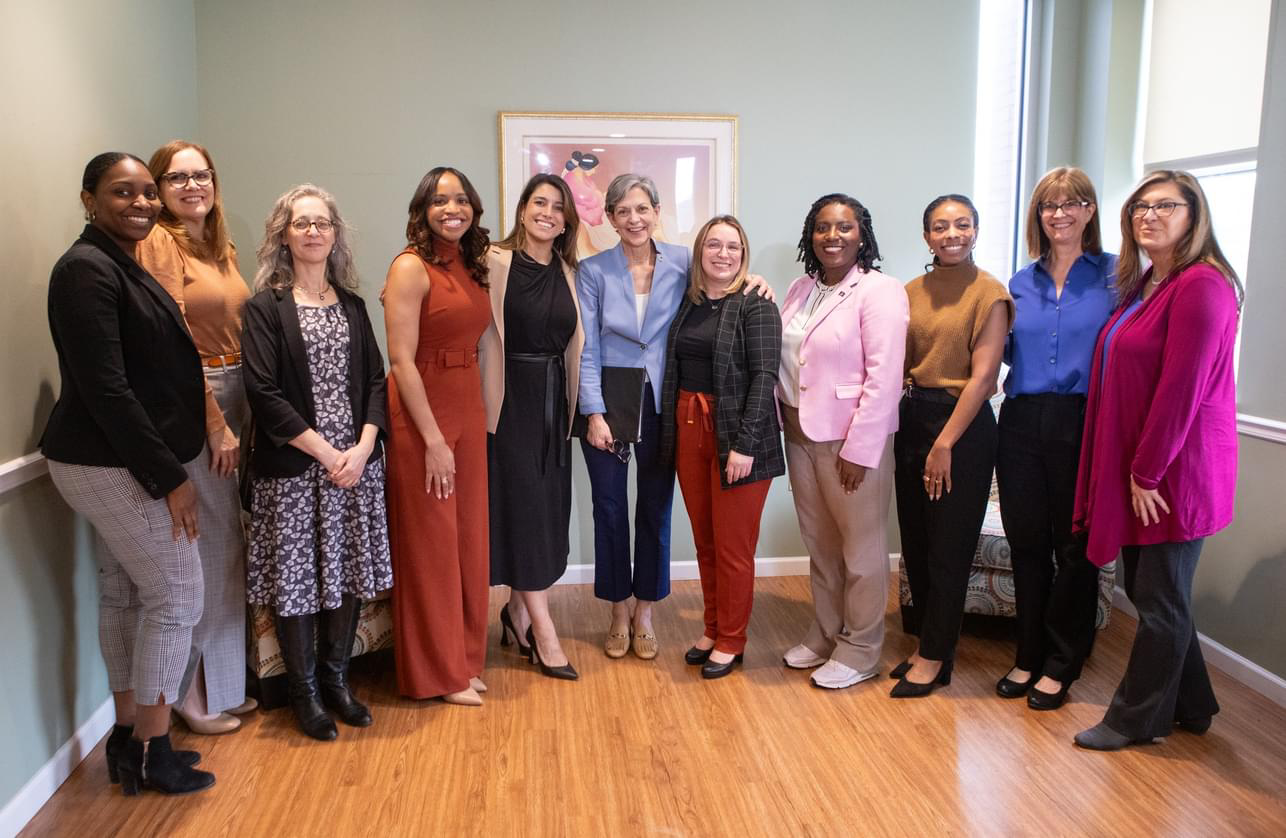TMC supports statewide investments and legislation to address maternal and infant health
The Pennsylvania Department of Health (DOH) hosted a press conference at The Midwife Center on March 8, International Women’s Day, to announce a $1.7 million investment to address maternal mortality. The announcement came just a day after a Pennsylvania House hearing on increasing access to healthcare, where Emily McGahey, DM, MSN, CNM, FACNM and TMC Clinical Director, gave powerful testimony about midwife care. Recent reporting on Black maternal death in Allegheny County further illuminates the need for these critical financial and legislative investments to address persistently - and mostly preventable - poor outcomes and racial disparities.
Department of Health Investment
The Midwife Center was honored to be part of the Department of Health’s significant announcement alongside local and state politicians and community partners.
Speakers included:
- Dr. Debra Bogen - Acting Secretary of Health
- Blayre Holmes Davis - Second lady of Pennsylvania
- Sara Innamorato - Allegheny County Executive
- Pennsylvania House Speaker Joanna McClinton
- State Senator Lindsey Williams
- State Representative Lindsey Powell
- Christine Haas, MA - Executive Director of The Midwife Center
As the only birth center in Western Pennsylvania - and one of just five birth centers in all of Pennsylvania - The Midwife Center recognizes our unique role in addressing maternal mortality and complications and reducing racial disparities.
Christine Haas, MA, TMC Executive Director, shared at the March 8 press conference, “We know from decades of data and research that birth centers consistently achieve better health outcomes than national averages and is one of the few models of care that significantly reduces the deep racial disparities in maternal and infant health in the United States.”
Read more about the press conference and the DOH’s investment in the Pittsburgh Post-Gazette.
Midwife Modernization Legislation
The important role of midwives in addressing maternal and infant health was one focus of the March 7th Pennsylvania House Hearing on increasing access to healthcare. Emily McGahey gave testimony in support of providing for the licensure of Certified Midwives and updating regulatory restrictions. These changes would help address the pregnancy and primary gynecological provider shortage in Pennsylvania and, alongside DOH’s investment, help improve maternal and infant health.
On March 18th, Senator Rosemary Brown released a Co-Sponsor Memo for “Modernization of Midwifery in Pennsylvania” inviting colleagues to support the legislation to make these changes.
You can call or email your state Senator and encourage them to sign on as a co-sponsor of this important legislation. Look up your Senator here. The more co-sponsors the bill has before it is introduced, the better chance we have of it moving forward through the legislative process.
Persistently Poor Outcomes and Racial Disparities
These financial and legislative advancements came as increased local, state, and national attention is being paid to persistently poor maternal and infant health outcomes. Health outcomes in the US lag far behind other high-income nations, especially for Black communities and other communities of color. The 2023 March of Dimes Report Card gave Pennsylvania a C+ grade based on the preterm birth rate and other key indicators of maternal and infant health. The report found that, “the preterm birth rate among babies born to Black birthing people is 1.5x higher than the rate among all other babies.”
Data from the Allegheny County Health Department, as reported by the Pittsburgh Post-Gazette in an article on Black maternal deaths, revealed “that Black birthers in Allegheny County face a maternal death rate higher than the national average, and two and a half times higher than their white counterparts.” Emily McGahey reacted to the findings, stating, “Even though, in the last five years, more attention has been given to concerns of how systemic racism and implicit bias have affected Black families, we’re not moving the needle the way we need to.”
